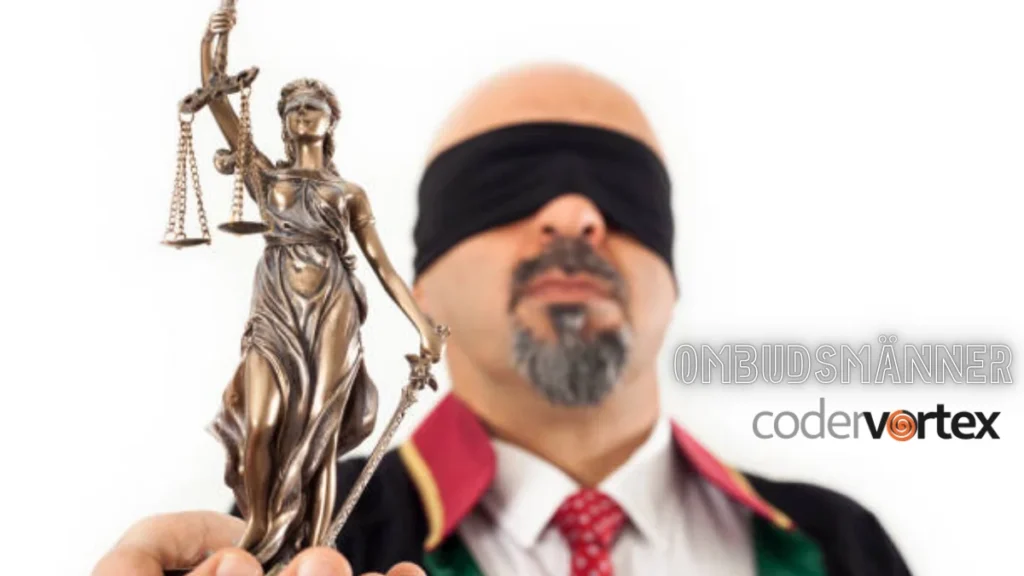Introduction to Ombudsmänner
Imagine a world where your voice is heard, and your concerns are addressed fairly. This is the mission of ombudsmänner, often regarded as the guardians of fairness in civil society. These impartial mediators play a crucial role in bridging gaps between individuals and institutions, ensuring that everyone’s rights are respected. Whether it’s navigating complex bureaucracies or resolving disputes, ombudsmänner stand ready to champion justice for those who feel overlooked.
In this blog post, we will delve into the fascinating history and evolution of these vital figures. From their inception to their modern-day roles, we’ll explore how they make a difference in people’s lives. Join us on this journey to understand why ombudsmänner are indispensable allies when it comes to protecting individual rights and fostering accountability within organizations.
History and Evolution of Ombudsmänner
The concept of ombudsmänner dates back to the early 19th century in Sweden. The Swedish Parliament established the first official ombudsman in 1809. This role was created to safeguard citizens’ rights against governmental abuse.
As societies evolved, so did the function of these guardians. Other countries recognized the need for independent oversight. By the mid-20th century, nations like Finland and New Zealand adopted similar institutions.
The role expanded beyond governmental issues to include sectors such as healthcare and education. Today, various organizations have embraced ombudsmänner to mediate disputes between individuals and corporations.
Technological advancements have also played a crucial part in this evolution. Digital platforms now facilitate easier access to ombuds services, making them more relevant than ever in today’s fast-paced world.
Roles and Responsibilities of Ombudsmänner
Ombudsmänner serve as impartial mediators between individuals and institutions. Their primary role is to investigate complaints and ensure fairness in handling grievances.
They listen carefully to the concerns of those seeking assistance, providing a platform for voices that might otherwise go unheard. This empathetic approach fosters trust and transparency.
Additionally, ombudsmänner analyze policies and procedures within organizations. They identify areas needing improvement, advocating for necessary changes to enhance accountability.
These guardians also educate the public about their rights. By informing individuals of available resources, they empower people to seek justice confidently.
Furthermore, ombudsmänner maintain confidentiality throughout the process. Protecting sensitive information is crucial in building rapport with complainants while ensuring a safe environment for resolution discussions.
Benefits of Having an Ombudsmänner System
Having an ombudsmänner system enhances transparency within organizations. It fosters trust among employees and stakeholders by providing a clear channel for addressing grievances.
Additionally, ombudsmänner offer impartiality. They serve as neutral parties who listen to concerns without bias. This encourages individuals to voice their issues without fear of retaliation.
Moreover, the presence of an ombudsmann promotes accountability. Organizations are compelled to address complaints seriously, leading to improvements in policies and practices over time.
Furthermore, this system can reduce conflict escalation. Early intervention by an ombudsmann often leads to quicker resolutions before disputes grow more complex.
Businesses with effective ombudsmänner can improve employee morale and retention rates. When staff feels heard and valued, they are likelier to stay engaged and committed to their roles.
Types of Cases Handled by Ombudsmänner
Ombudsmänner serve as vital intermediaries in various sectors. They tackle a wide array of cases, ensuring fairness and transparency.
In the realm of public services, ombudsmänner often handle complaints about government agencies. These can range from issues with social services to grievances regarding housing policies.
In the private sector, they mediate disputes between consumers and businesses. This might include product defects, service failures, or unfair billing practices. Their role ensures that consumer rights are upheld.
Education is another key area where ombudsmänner make an impact. They address concerns related to schools and universities—ranging from student discrimination to academic integrity violations.
Healthcare also falls within their purview. Ombudsmänner assist patients facing challenges with medical providers or insurance companies, advocating for patients’ rights during complex situations.
Each case handled helps build trust in institutions while reinforcing fair treatment across different environments.
Challenges Faced by Ombudsmänner
Ombudsmänner often face significant challenges in their roles. One of the primary hurdles is maintaining neutrality amid diverse interests and opinions. Balancing these can be delicate, particularly when parties are emotionally invested.
Limited resources also pose a problem. Many ombudsmän operate under tight budgets, which restricts their ability to address cases thoroughly and efficiently. This limitation can lead to backlogs, frustrating both complainants and mediators alike.
Another challenge is public awareness. Many individuals remain unaware of what ombudsmänner do or how they can assist them. Without proper understanding, people may not utilize these services when needed.
Navigating complex legal frameworks can be daunting for ombudsmänner. Laws vary greatly across jurisdictions, making it crucial for them to stay informed about changes that could affect their work and the rights of those they serve.
Success Stories of Ombudsmänner Interventions
Ombudsmänner have a track record of transforming lives through their interventions. One notable case involved a university student who faced unjust expulsion due to alleged misconduct. After the ombudsman reviewed the evidence, they discovered procedural errors in the handling of the case. This led to the student’s reinstatement and highlighted flaws in institutional processes.
In another instance, an elderly couple was struggling with unfair billing practices from their healthcare provider. The ombudsmann stepped in, facilitating negotiations that resulted in significant reimbursements for the couple and improved transparency in billing procedures.
These stories underscore how effective mediation can change outcomes for individuals facing daunting challenges. By advocating for fairness, ombudsmänner not only resolve specific issues but also foster trust within communities and institutions alike. Each success story is a testament to their vital role as champions of justice and equity.
Conclusion: Importance of Protecting the Rights of Individuals through Ombudsmänner
The role of ombudsmänner is vital in ensuring fairness and justice within various systems. These guardians provide individuals with a voice, particularly in situations where it may feel like they have none. By promoting transparency and accountability, ombudsmänner foster trust between citizens and institutions.
Their impact extends beyond resolving complaints; they also educate the public on their rights. This knowledge empowers individuals to advocate for themselves while navigating complex bureaucracies. With ongoing challenges such as limited resources or evolving legal landscapes, the commitment of ombudsmänner remains essential.
As societies continue to grow more complex, the need for impartial mediation becomes increasingly important. The work of ombudsmänners serves as a reminder that protecting individual rights should always be at the forefront of any functioning democracy. Their presence ensures that fairness prevails, making our communities stronger and more equitable places to live.
Find exclusive updates waiting for you—click through to Coder VORTEX.





